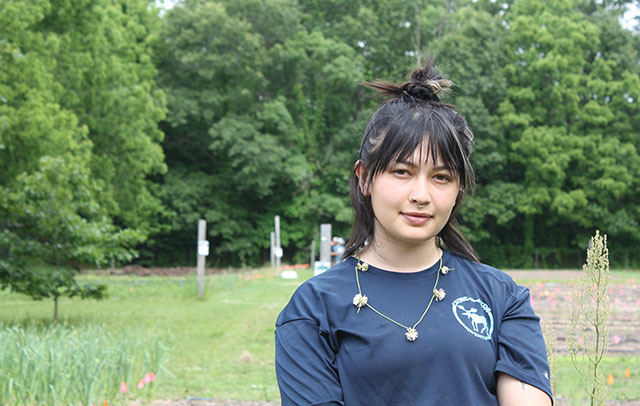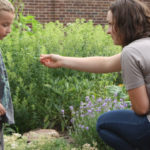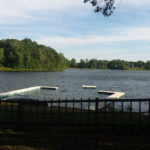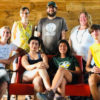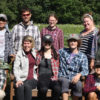As the rhythm of summer has already begun, *culture is not optional is excited to welcome our new AmeriCorps members – Sugan, Jacob, Ale, Anna and Annelie! Our projects include food systems work at The Huss Project Farm, storytelling and promotions for *cino and Future Fest and construction for the Imaginarium.
This week we’ve asked the new staff to share how previous places they’ve inhabited inform their current perspectives and role in the world.
Sugan is a recent graduate from Western Michigan University and a summer associate here. They were born in Bundu Tuhan, Malaysia and have lived most of their life in Kalamazoo, Michigan. “The lesson I learned from Kalamazoo is that it’s important to invest in your community,” they noted. “What I’ve learned from spending time in Bundu Tuhan is that you have to draw upon preexisting knowledge. A lot of that knowledge comes from elders. So if you are going to take that model and apply it to non-indigenous and non-tribal settings, it would be talking to people who have been here for a long time.”
Sugan pointed out their appreciation for already having such interactions in Three Rivers. At the Water Parade in town, Sugan met Richard Price, a longtime resident of Three Rivers. He walked AmeriCorps members through several old sites on the walk, such as an old gas station where the Ridgeway Floral & Gifts now stands.
Getting to know folks in Three Rivers like Richard is an essential social value that, for Sugan, applies directly to *cino’s approach regarding other things like permaculture. In order to understand permaculture, we must understand its roots in indigenous cultures, where social and environmental aspects of agriculture are tied, Sugan noted.
Sugan’s involvement in Three Rivers – particularly working at the summer lunch program and Huss Project Farm – has allowed them to combine their interests in permaculture, community sustainability and education. “There is a certain type of empowerment, being able to grow your own food. That creates better connectedness between yourself and what sustains you,” they said.
One question Sugan has been asking themself is how to integrate self-healing work in the context of a systems thinking model. “It is ironic to be doing healing work—whether you’re healing the environment or community—and not healing yourself,” said Sugan. “My biggest question is how do I channel healing energy to myself as well?”
Stay tuned for future bios this week.
Last modified: March 4, 2020
